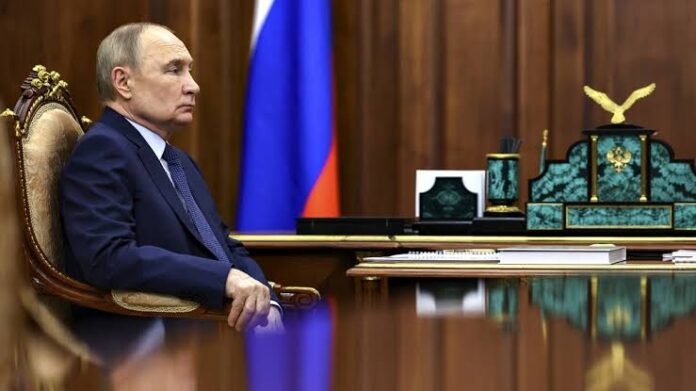European Union has proposed a new round of sanctions against Russia, aimed at intensifying pressure on the Kremlin to accept a 30-day unconditional ceasefire in Ukraine, seen by Western powers as essential to kick-start meaningful peace talks.
If endorsed by all 27 member states, this would become the EU’s 18th sanctions package since the outbreak of the war in February 2022, making it the most extensive sanctions regime in the bloc’s history.
The proposal, presented yesterday by European Commission President Ursula von der Leyen and High Representative Kaja Kallas in Brussels, Belgium, includes a series of tough measures.
Among them are new restrictions on Russian banks and a broadened crackdown on Russia’s so-called “shadow fleet” of tankers, which the EU says Russia uses to evade sanctions and engage in covert operations at sea. More than 350 vessels have already been blacklisted under earlier rounds.
Another major provision is a formal ban on the Nord Stream pipelines, which previously supplied gas from Russia to Germany beneath the Baltic Sea.
Though the pipelines are currently dormant and Germany has ruled out their future use, the EU seeks to seal off any path to their reactivation once the war ends.
Perhaps the most economically significant element of the proposal is a revision of the G7-imposed price cap on Russian seaborne oil.
Set at $60 per barrel since December 2022, the cap has remained static despite volatile market conditions and signs that Russia has been circumventing the restriction.
Nordic and Baltic countries have led calls to lower the cap to more effectively cut into Russia’s oil revenues.
The EU could, in principle, revise the cap independently; however, officials admit that acting alone might weaken the cap’s global effectiveness unless the move is coordinated with the United States and other G7 allies.
However, coordination with America remains uncertain. U.S. President Donald Trump has resisted imposing new sanctions on Russia, despite adopting a tougher tone toward Russian President Vladimir Putin in recent weeks.
His reluctance has exposed rifts within the Western alliance, with the EU, the UK, and Canada pushing ahead with fresh measures as the U.S. holds back.
These differences are expected to take centre stage at the upcoming G7 summit in Canada, where the oil price cap will be a key topic of debate.
EU diplomats say they are determined to proceed with the sanctions regardless of America’s stance. But Trump’s position could still influence the pace and scope of deliberations in Brussels, where a unanimous decision is required to approve any new package.
That unanimity remains uncertain. Hungary and Slovakia have stepped up their criticism of the sanctions regime, warning of the economic damage to EU member states.
Earlier this year, Hungary threatened to block the renewal of sectoral sanctions, prompting EU officials to explore legal options, particularly to safeguard €210bn in frozen Russian assets.
Last week, Slovakia’s parliament narrowly passed a resolution calling on the government to reject further trade restrictions.
Slovakia’s Prime Minister Robert Fico objected to the sanctions, saying, “If there is a sanction that would harm us, I will never vote for it. I want Slovakia to be a constructive player in the EU, but not at our own expense”.
Despite their vocal objections, neither Hungary nor Slovakia has yet used their veto to derail a sanctions package outright.





